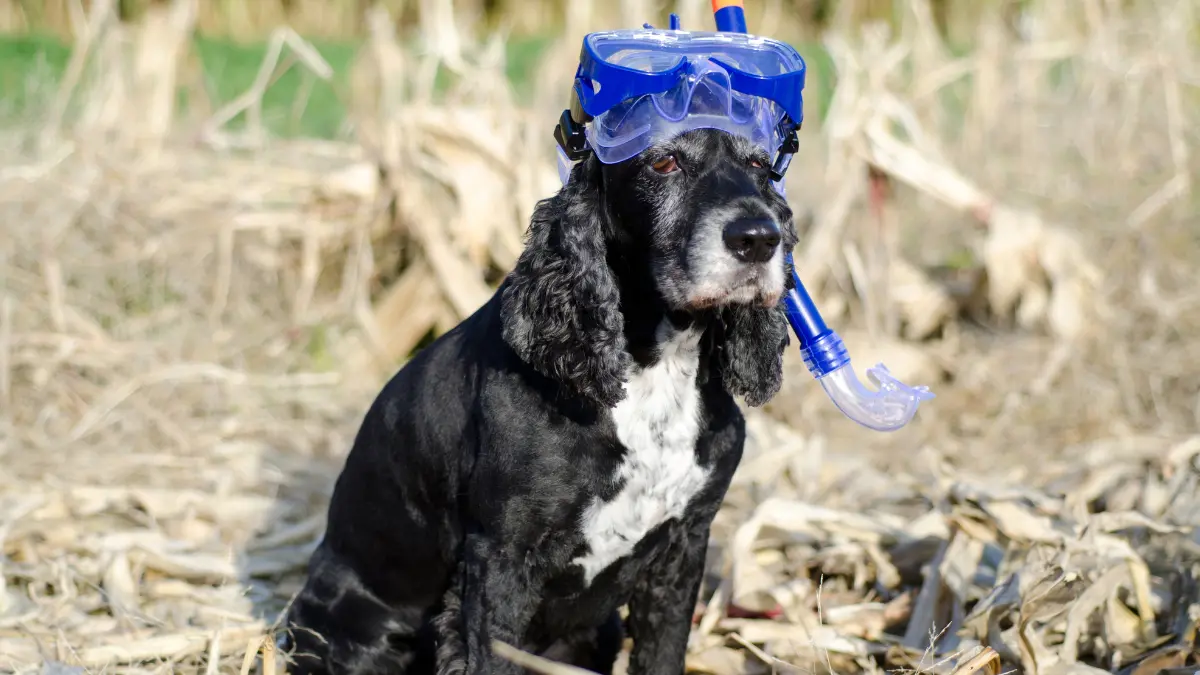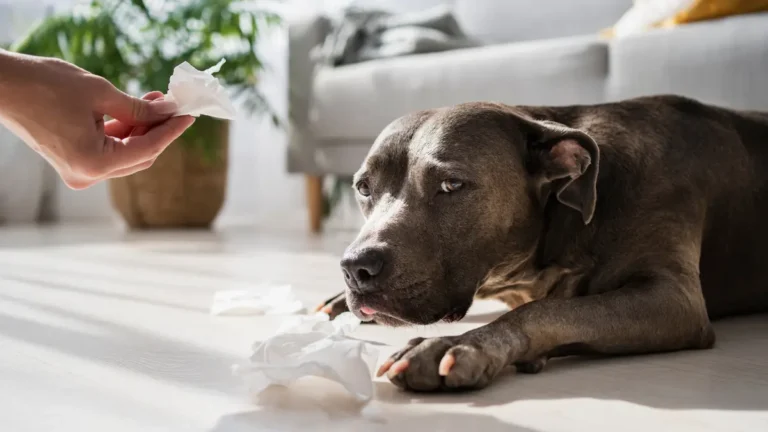Dogs are beloved members of our families, but sometimes they develop unusual odors that leave pet owners scratching their heads. One of the most perplexing and unpleasant smells a dog can emit is a fishy odor. This scent can be alarming and often signals an underlying issue that needs attention. If you’ve ever asked yourself, why does my dog smell like fish, this article will provide answers by exploring the common causes and offering effective solutions to tackle the issue.
Table of Contents
II. Common Causes of a Fishy Smell in Dogs
A. Anal Gland Issues
One of the most frequent reasons for a dog’s fishy smell originates from their anal glands. These small sacs located near your dog’s anus release a pungent fluid with a fishy odor. Normally, these glands empty naturally during bowel movements, but problems can occur when they become impacted or infected.
Causes: Anal gland issues can arise from a poor diet, obesity, or lack of physical activity. Stress or fear can also cause natural expression, leaving pet owners wondering, why does my dog smell like fish when scared?
Symptoms: Watch for signs like scooting, excessive licking near the rear, swelling, or redness around the anus. If left untreated, impacted glands may lead to infections.

B. Dental Problems
Another common source of fishy odors in dogs is their mouth. Dental issues such as tartar buildup, gum disease, or infections can cause bad breath that resembles a fishy smell.
Symptoms: Besides the odor, you may notice your dog drooling more than usual, pawing at their face, or showing a decreased appetite due to discomfort. Dog breath smells like fish is often a sign that their teeth or gums need attention.
C. Urinary Tract Infections (UTIs)
UTIs are a frequent culprit in female dogs when it comes to fishy smells. This occurs because bacterial infections in the urinary tract can cause a noticeable odor.
Symptoms: If your dog is urinating more often, having accidents indoors, or if their urine has a strong fishy smell, they may have a UTI. Pet owners might also observe this issue after outdoor activities and wonder, why does my dog smell like fish after being outside?
D. Vaginal or Reproductive Issues
In unspayed female dogs, fishy odors can stem from hormonal changes, infections, or conditions like vaginitis or pyometra. Even spayed dogs can sometimes emit this smell due to infections or surgical complications.

E. Skin or Yeast Infections
Moisture buildup, allergies, or poor hygiene can lead to skin or yeast infections, particularly in areas like paws, ears, and skin folds. These infections often result in a fishy odor.
Symptoms: Look for redness, itching, or discharge in the affected areas. If your dog smells after outdoor activities, this could also explain why does my dog smell like fish after being outside.
III. How to Get Rid of the Fishy Smell from Your Dog
A. Identify the Cause
Before attempting to treat the smell, it’s important to pinpoint the source of the odor. Check your dog’s breath, butt, and skin for any signs of infection or irritation. Observing additional symptoms can help you determine whether a home remedy will suffice or if a trip to the vet is necessary.
B. Home Remedies for Minor Issues
For mild cases, there are several at-home solutions that can effectively address fishy odors:
- Anal Gland Care: Use pet-safe medicated wipes to clean the area around your dog’s anus. Adding fiber to their diet or using probiotics can also help prevent future issues.
- Dental Hygiene: Brush your dog’s teeth regularly using dog-specific toothpaste. Dental chews and water additives can also help reduce bad breath caused by tartar buildup.
- Skin Care: Bathe your dog with a high-quality, medicated shampoo designed for pets. Ensure their coat is dried thoroughly after baths or outdoor play to prevent moisture-related infections.

C. When to See a Veterinarian
While home remedies work for minor issues, persistent or severe fishy odors warrant a vet visit. Seek professional help if:
- The smell appears suddenly and doesn’t improve.
- Your dog shows symptoms like swelling, discharge, lethargy, or a loss of appetite.
- Conditions such as UTIs, pyometra, or severe dental diseases are suspected.
IV. Preventing Fishy Smells in Dogs
Prevention is key to keeping your dog smelling fresh and healthy. Follow these tips to avoid fishy odors:
- Regular Grooming: Bathe your dog as needed using high-quality pet products and pay extra attention to areas prone to odors, such as the paws and ears.
- Dental Care: Brush your dog’s teeth daily and provide dental chews or water additives to maintain oral health.
- Healthy Diet: Feed your dog a balanced diet that promotes digestive health and prevents anal gland issues.
- Routine Vet Visits: Schedule regular checkups to monitor your dog’s overall health, including their anal glands and teeth.

V. FAQs: Common Questions About Fishy Odors in Dogs
- Why does my dog smell like fish when scared?
- When dogs are stressed, their anal glands may express naturally, releasing a strong fishy odor.
- Why does my dog smell like fish sometimes?
- Odors can vary based on your dog’s activities, health, or diet. Occasional smells are usually not a cause for concern.
- Why does my dog smell like fish after being spayed?
- Hormonal changes or infections following surgery could cause unusual odors. Consult your vet if the smell persists.
Addressing fishy odors in dogs starts with understanding the underlying causes. Whether it’s an anal gland issue, dental problem, or skin infection, proper care and timely vet visits can help eliminate the smell and keep your furry friend healthy and happy.





